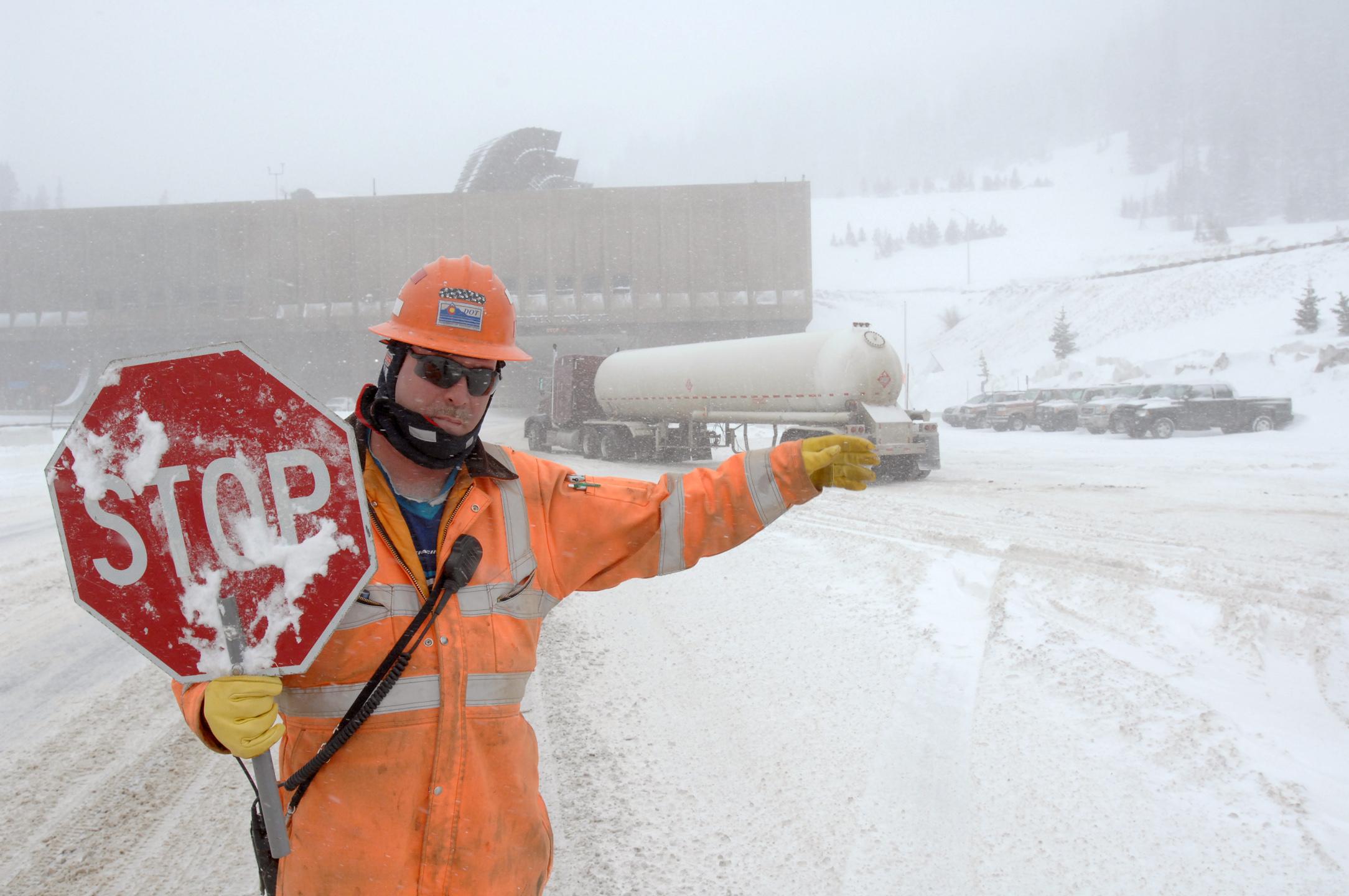

Should tanker trucks carrying hazardous materials be allowed through the Eisenhower-Johnson Tunnels on Interstate 70 in the mountains west of Denver?
A Colorado Senate panel on Tuesday advanced a bill that would direct the Colorado Department of Transportation to study that question.
Currently, trucks must traverse the Continental Divide over 11,990-foot Loveland Pass on U.S. Highway 6. The lone exception is when the pass is closed for weather or other reasons; then, hazmat trucks are allowed through the tunnel at specific times.
Industry groups supporting the bill say Loveland Pass, replete with hairpin turns and a maximum grade of 6 percent, is dangerous for truckers.
"We have up to 100 mile per hour winds at times, weather changes very quickly, there are very little shoulders, there are no guard rails,” said Greg Fulton, president of the Colorado Motor Carriers Association. “It's a white knuckle experience.”
The bill, sponsored by Sen. Ray Scott, R-Grand Junction, and Rep. Julie McCluskie, D-Dillon, would require CDOT to conduct a study by Dec. 1, 2019. CDOT would also have to seek input from nearby municipalities and affected industries including ski resorts.
Some 36,000 vehicles a day use the Eisenhower-Johnson tunnels, the main route between Western Colorado to the Front Range.
"That's the lifeblood of the Western Slope," Scott said. "Whether it be recreational [traffic] for the ski areas or simply things like groceries, or the U.S. mail, or Amazon Prime."
Sen. Kevin Priola, R-Henderson, asked whether hazmat traffic would be only be allowed during low-use times, like between 1-3 a.m.
"In the summer it's super busy,” Priola said. “And in the winter it's very busy pretty much all day, especially late at night. That wasn't the case in the 80s."
Scott, the bill sponsor, said those details would be hammered out in CDOT’s study. Those results would then be reported back to legislators, he said.
The committee voted 7-0 to move the bill to the Senate floor.








